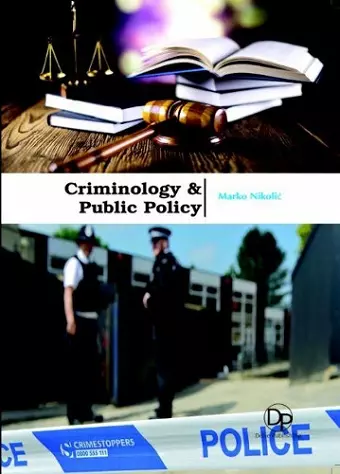Criminology & Public Policy
Format:Hardback
Publisher:Delve Publishing
Published:30th Nov '16
Should be back in stock very soon

The foundation of public policy is composed of national constitutional laws and regulations. Public policy is considered strong when it solves problems efficiently and effectively, serves justice, supports governmental institutions and policies. So, Criminology needs strong public policy base to solve problems related to crime and punishment. Public policy making is a continuous process that has many feedback loops. Verification and evaluation are essential to the functioning of this system. It gives authorities and di¬rects criminology that finds new solutions in solving the most pressing social problems.
Research in Chapter 1 tests the hypothesis that group practice of the Transcendental Meditation® (TM) and TM-Sidhi® program by a group of sufficient size is associated with reduced rates of homicide and violent crime. They focus on the macro-level of society and propose that a positive impact on the collective consciousness of society can be predicted, generated, and its influence measured in terms of decreased homi¬cide and violent crime. This is just an example of how smart policy and the selection of appropriate programs are important. Findings in Chapter 2 and 3 suggest that the economic costs of sexual violence can burden survivors with fewer financial resources more heavily than those who own significant assets. As such, these findings shift the focus toward a dimension of inequality in recovery from sexual violence that is often overlooked in research and that may have implications for public policy and victim services. We need good policies in managing and helping survivors also and this is often overlooked once the offender is arrested. An effective response to crime is not possible without an analysis of the social consequences of crime. Chapter 4 takes us to modern Russia. Chapter 5 examines for the first time to what extent the lived experience of long-term prisoners matches the normative theory of criminal punishment as moral communication. The incarcerated members of society cannot be forgotten while Chapter 6 shows us how unfortunately often serious massacres needs to happen so public policy would be changed. Countries use technologically enhanced criminal investigation techniques for the alleged crime or for the probable crimes. Extended applications of those techniques have become the threats to individual rights such as right to privacy, freedom of expression, the right to freedom of...
ISBN: 9781680957891
Dimensions: unknown
Weight: unknown
331 pages